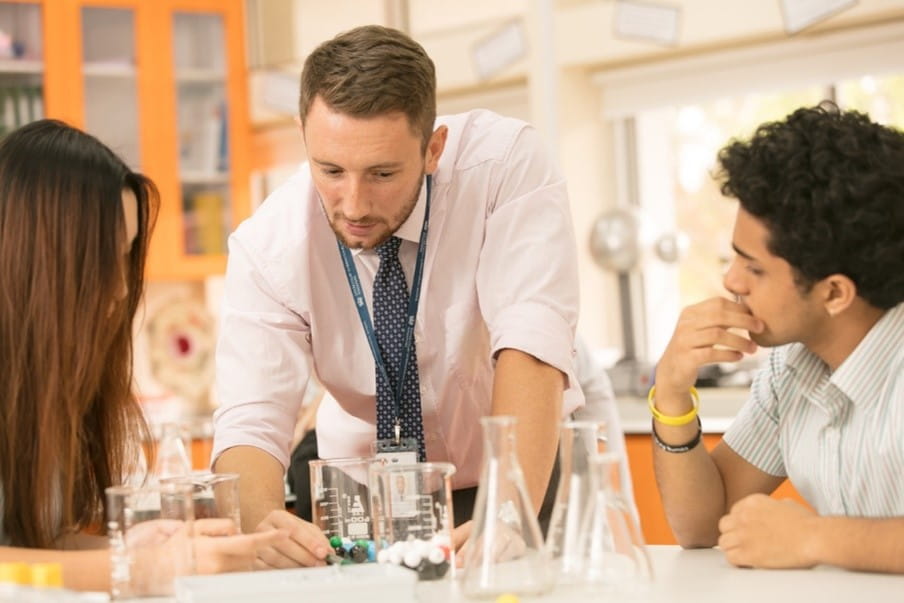We use cookies to improve your online experiences. To learn more and choose your cookies options, please refer to our cookie policy.

With exam season is upon us, I wanted to give parents and students my thoughts on how to get the best results possible this year.
First, a bit about me. I’m the Progress Leader for Year 11 at Dover Court International School, Singapore. I teach IGCSE Science as well as IBDP Physics, which are both very assessment orientated. That’s why I have a keen interest in the best ways to prepare for exams.
Exam preparation should ideally begin months prior to the actual exams (not a day or two before!) and should have distinct phases, which can be coordinated with a teacher’s help:
The above steps are a summary of the main revision cycle students should complete, though this is dependent on many factors including the stage of study and subject, the level of student attainment and individual learning needs, as well as the timeframe they are working towards.
One key element of exam revision is also the use of ‘past paper questions’ (PPQs) or ‘exam-style questions’ (ESQs), so students can practice their ability to answer exam questions that have been used previously. The best practice for an activity is of course the activity itself, just as a golf drive is only improved by time spent at the driving range. PPQs can be used in stage 2, 3, or 4 of the above cycle, and again once the cycle is completed alongside more typical classroom strategies.
At my school in Singapore, I recently led an assembly with students called Matchday Preparation for Examinations, where I likened mentally preparing for an assessment to the physical preparation for an important sports match, and I wanted to share the key points to help you equip your children for their exams.
If, like me, students have always found dribbling with a football difficult, the week before a match is probably not the time for them to try and become the next Lionel Messi. They should also focus on their strengths. The days immediately preceding an exam should comprise of reinforcing key bits of knowledge, practicing specific skills for the exam, and reflecting on and retaining the exam technique based on the PPQs. Otherwise, their efforts in revision and preparation are diminished.
Practice by reflecting on these types of questions:
In sports, you would discuss how the last match went and agree what went well and areas for improvement for the next game. This is the same with exams.
Continuing with my sports analogy, consider the field of physiology. As an organ the brain has the greatest energetic requirements, the largest water content, and is the most impaired by a lack of sleep. It should be no secret to you that students should drink plenty of water, limit caffeine and ensure to eat a healthy, balanced breakfast of something they’re familiar with (there is no need for them to test their gut and brain at the same time!).
Also, getting good quality sleep is far better preparation for an exam than a few hours of cramming the night before. To achieve good quality sleep, students will need guidance and perhaps some boundaries. They need a bedtime routine, and I would suggest that no devices past 8 o’clock, followed by perhaps a bath or shower and some reading. I would also suggest the students partake in some light exercise the day before, to aid in relieving some cognitive load, which is no different from athletes relieving tension in their muscles after intense training sessions through the endless foam rolling that they always recommend.
What about the day itself? It is common practice that immediately prior to performing a sports action, such as kicking a conversion in rugby, mental rehearsal is used to visualise the process and outcome. This is usually accompanied by a grounding technique, such as touching the grass or retying boot laces. I would suggest that students do exactly the same the morning of an exam. They should mentally walk through the paper, considering the content which will be queried, the question structure and the format of responses that they willwrite. Then finally, they should aim to ground themselves, ready to complete the exam.
If you are dropping them off, then you can of course assist in this. Perhaps by sitting in the car in silence with your eyes closed and asking them to described their experience using each of their senses.
As a fun personal story, right before every exam throughout Sixth Form and University I would listen to Seal’s classic hit Kiss From a Rose though headphones with my eyes closed. I’m not sure that particular track would go down so well with the current generation, but it certainly worked for me!
My last point is that an examination is a marathon, not a sprint. Students should be encouraged to pace themselves and keep calm. They can always ‘make up minutes’ (or marks) in the later section (or question) of a race (or examination).
Good luck to all students across Nord Anglia Education schools undertaking exams and thank you to you all as parents for your efforts in supporting them!
Mr. Matthew Tuckley is the Year 11 Progress Leader & Teacher of IBDP Physics at Dover Court International School, Singapore.
Meet Matt by watching the video below!